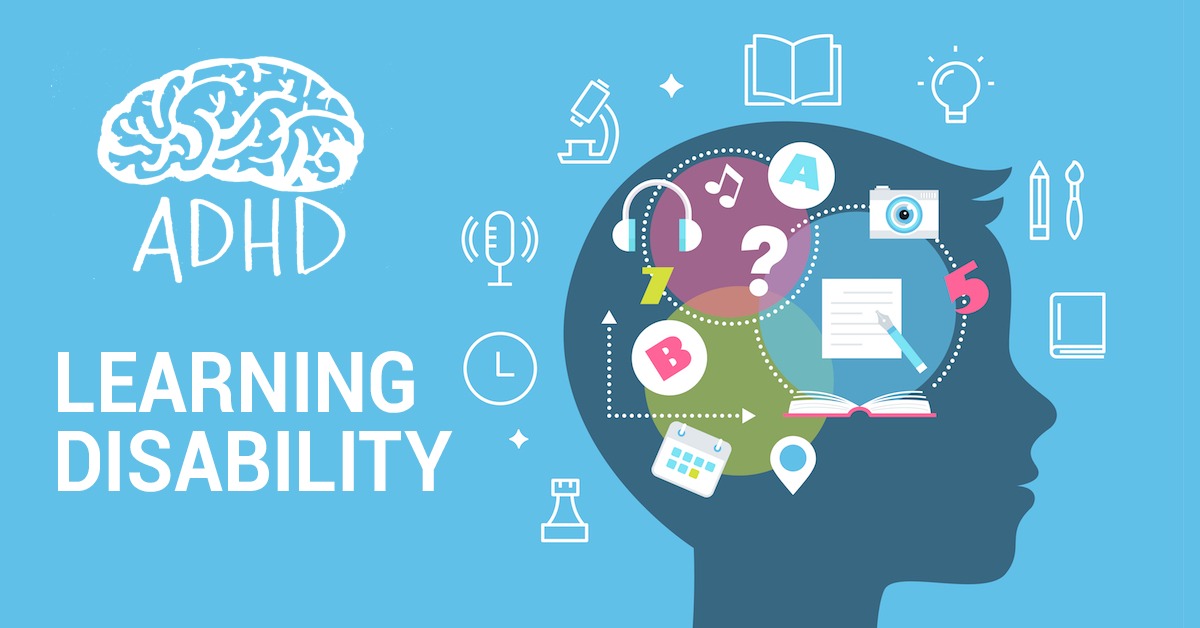By Adhd.mecare
Dec 14, 2022
Is ADHD a Learning Disability?
Although ADHD can affect learning, it is not a learning disability. Some of the side effects, such as hyperactivity and difficulty concentrating, may affect a person's ability to learn and some of the symptoms may be mistaken for those of a learning disability. Children with ADHD have higher rates of learning disorders, and children with learning disorders are more likely to be diagnosed with ADHD.
How can ADHD impact learning?
ADHD can have an impact on many aspects of learning. This condition's symptoms and effects on education may include Reliable Source:
Reduced executive function: This makes it difficult to plan and coordinate one's thoughts and actions. Individuals may struggle to begin assignments, meet deadlines, and regulate their emotions.
Hyperactivity: People with ADHD may struggle to sit still, wait their turn, or remain quiet. This makes it difficult for them to succeed in school. It may also have an impact on relationships with peers and teachers.
Difficulties paying attention: People with ADHD may struggle to stay focused in school, affecting their ability to learn. Even if a student knows the material, attention problems can make it difficult for them to perform well on tests. This is due to the fact that distraction prevents them from completing the assessment or comprehending the questions.
Disorganization: People with ADHD who are disorganized may find it difficult to study or prioritize tasks. It can also cause them to miss deadlines and forget about schoolwork, negatively impacting their grades.
Impulsivity: ADHD can lead to impulsive behavior, which can get a student into trouble at school. It may also lead to them making questionable decisions, such as failing to study or completing homework.
Inattention to detail: ADHD students may rush through tasks or be unable to pay attention to minor details. They may, for example, overlook an extra word in a question or fail to fully read or comprehend an academic assignment.
Diagnosis of ADHD and learning disabilities
There is no single test that can identify ADHD or a learning disability. To diagnose ADHD and learning disabilities, Psychiatrists specializing in ADHD use DSM-5 diagnostic criteria. Furthermore, having only one symptom of the diagnosis is insufficient; a person must have multiple symptoms of the diagnosis that interfere with daily life.
The following are some methods for diagnosing these conditions:
Medical and physical history: A physical examination cannot diagnose ADHD or a learning disorder, but it can rule out other possibilities, such as a head injury or infection.
Academic history: A healthcare professional may inquire about a student's academic record in order to determine the areas in which they struggle. A child with good grades who only struggles with reading, for example, may have a reading-related learning disorder such as Dyslexia.
Neuropsychological testing: A doctor may administer a variety of tests to a child in order to assess their attention, screen for specific learning disabilities, and identify thinking or learning differences.
Developmental history: Because learning disabilities and ADHD have genetic components, a healthcare professional may inquire about any family history of the conditions. A doctor will look for evidence of ADHD symptoms in multiple stages of development and contexts to diagnose a child or adult with ADHD.
How to manage ADHD and learning
ADHD treatment can help with learning-related symptoms. Try the following approaches:
Educate parents and teachers about ADHD: Adults who care for children with ADHD may benefit from additional support in managing their symptoms.
Try out different ADHD management strategies: Frequent reminders, calendar apps, a planner, or a designated location for all school books may help to reduce forgetfulness and stress
Think about therapy: Psychotherapy can help a person learn to live with ADHD, develop coping strategies, and advocate for their needs at school more effectively.
If the person with ADHD is older than 6 years old, consider medication: Stimulant medications can help a person concentrate, which may allow them to self-actualize at school.
Adopt a multifaceted treatment approach: The American Academy of Pediatrics recommends using stimulant medications in children under the age of six only when other interventions have failed. At all ages, a combination of interventions works best.
Summary
ADHD is not a learning disability because it does not impair a person's ability to learn a particular skill set, such as reading, writing, or mathematics. However, some psychiatrists who provide Adhd Assessment UK in Private suggest that some ADHD symptoms, such as difficulty concentrating, can cause learning difficulties.
The condition can make learning difficult, but it does not have to put a person's academic goals on hold. People with ADHD can be successful students and achieve great things in school. Those with ADHD can thrive in environments that require close attention and quiet with the right combination of treatment and support.
